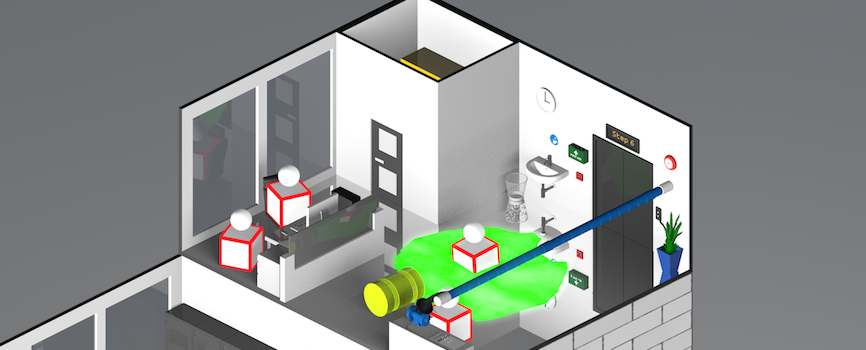Working from home: Health & Safety and Compliance considerations
Posted 4 years ago

The concept of working from home is nothing new, in fact, the earliest record of at-home workers dates back to medieval times, when working classes often set up trade shops in their homes. Many of them offered goods and services to support families in living spaces that were designed to accommodate working from home!
In recent years, home working or ‘remote working’ has grown rapidly and many businesses worth millions, even billions were built by cultivating a working from home culture. Take Basecamp for example; Basecamp offers a project management and team communication platform that is now used by over 3 million people and is now valued at over $100 billion. What’s so impressive about Basecamp? They only have around 50 staff, all of which have the complete freedom to live and work wherever they want. Their team is built up of staff that are spread out across 32 different cities around the world!
Basecamp was founded in 1999. We started out with four people, and today we’re a company of about 50 spread out across 32 different cities around the world. Our headquarters is in Chicago, but everyone at Basecamp is free to live and work wherever they want. Many of us love working remotely – we literally wrote the book on remote working!
It’s clear to see that, in many cases, remote working can be done very successfully; but what are the Health & Safety, and Compliance implications of working from home? Who is responsible for homeworkers Health & Safety?
Are there different Health & Safety and Compliance considerations for homeworkers?
Whilst working from home might present new hazards and risks, considerations shouldn’t sway too much away from the same areas of consideration of risks that a workplace might have. For example, in an office, a responsible person might highlight general Health & Safety, Fire Awareness, DSE and GDPR/Cyber Security as potential risks and then sort out plans (and training) accordingly.
These same risks will be present in a home working situation but they’ll more than likely present themselves in different ways.
Who is responsible for the Health & Safety of homeworkers?
Employers are required to protect the health, safety and welfare of homeworkers who are employees. If you employ homeworkers you should carry out a risk assessment of the work activities and take appropriate measures to reduce any associated risks.
Health & Safety and Compliance considerations for homeworkers
DSE
DSE (Display Screen Equipment) is all about looking at the equipment you work with and ensuring that your workstation and the display screen equipment is set up correctly to promote good posture and decrease the chances of inducing musculoskeletal injuries.
DSE and working from home is no different. Employers should encourage best DSE practices and do all that is reasonably practicable to ensure that employees’ workstation setups at home are suitable. This might include:
- Refreshing DSE Training
- Providing a risk assessment for home working
- Making use of an online DSE Assessment Tool
Cyber Security and GDPR
Good Cyber Security and Data Protection is crucial in any business compliance strategy, but how does home working affect this? Whilst software and systems may still be secure regardless of where you’re working from, there are other things to consider, such staff taking sensitive documents from the workplace to their homes, their own network security and the security of sensitive documents when working from home.
Employers should encourage best Cyber Security and Data Protection practices and do all that is reasonably practicable to ensure that employees still work towards compliance with legislation. This might include:
- Refreshing Cyber Security and GDPR training
- Providing a risk assessment for home working
- Ensuring that staff password-protect files and use two-factor authentication
General Health & Safety
Things like Fire Awareness, Slips, Trips and Falls and Manual Handling should all be considered too. We offer a Health & Safety course specifically designed for homeworkers that includes information on:
- Avoiding slips, trips and falls
- Fire safety awareness
- Promoting good lifting technique
- Electrical safety
- Setting up home workstations correctly
- Home security
- Work confidentiality
- First aid
How can iHasco help me with my homeworkers?
Our range of engaging compliance eLearning courses offer the perfect refresher training for homeworkers and if you’re letting staff temporarily work from home and need to ensure they have completed their training, you’ll be able to easily manage and report with our easy-to-use LMS. Our training for remote workers bundle offers a cost-effective and time-efficient way of bringing staff up to speed with legislation and working towards legislative compliance as an organisation. You can try any of our courses for free or request a quote at any time and we’ll be in touch!

Related articles



Opt-in to our newsletter
Receive industry news & offers